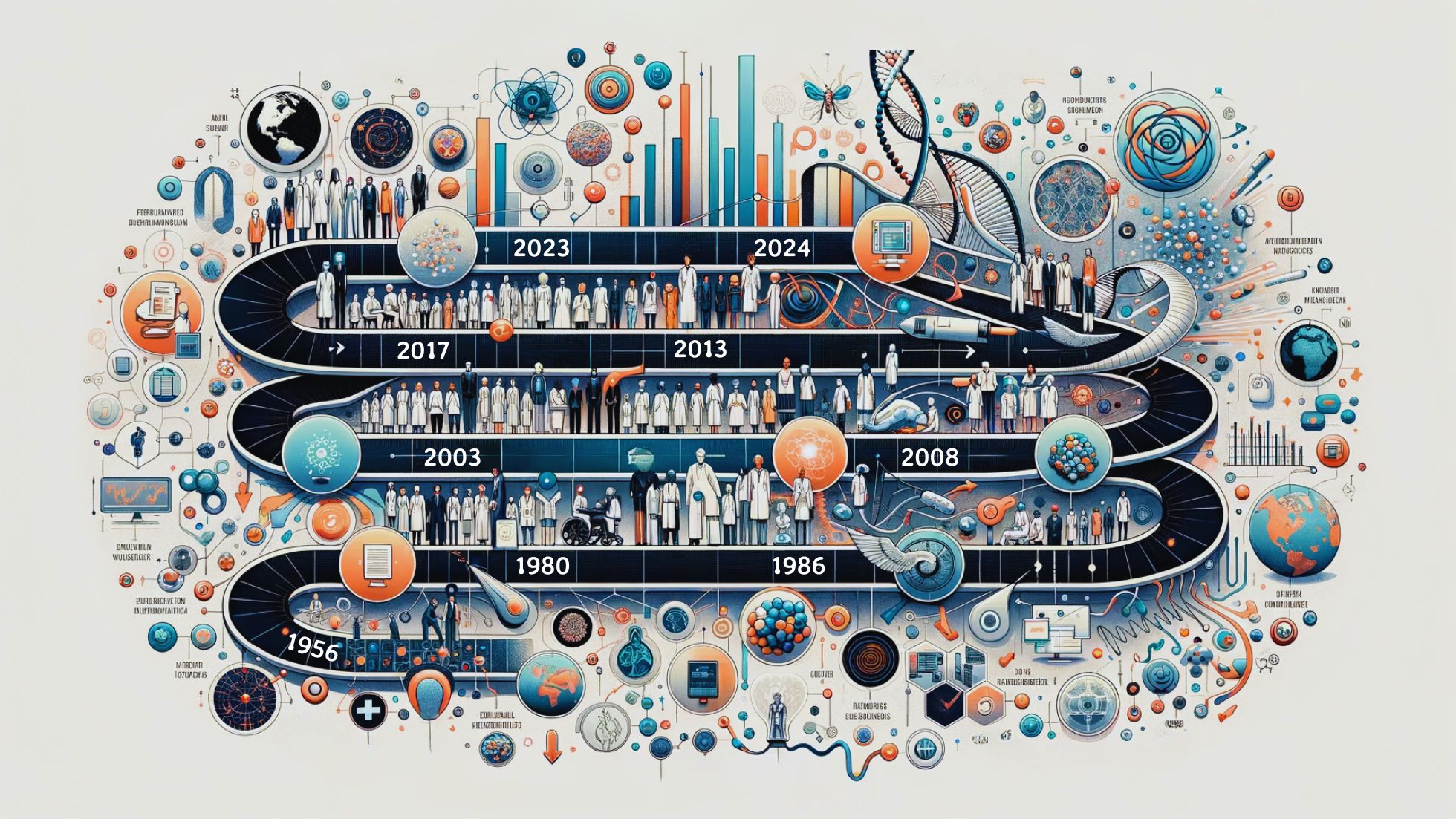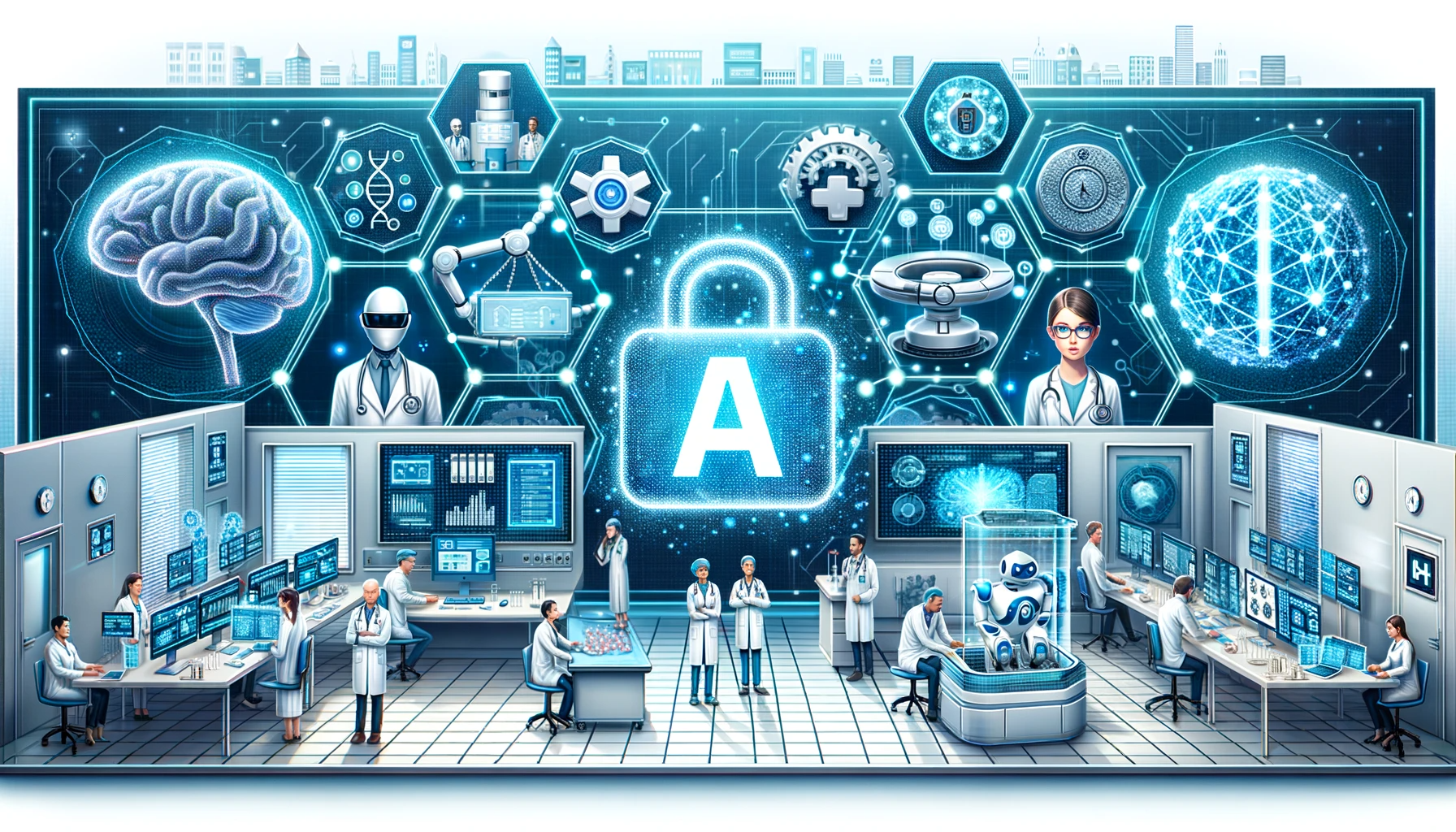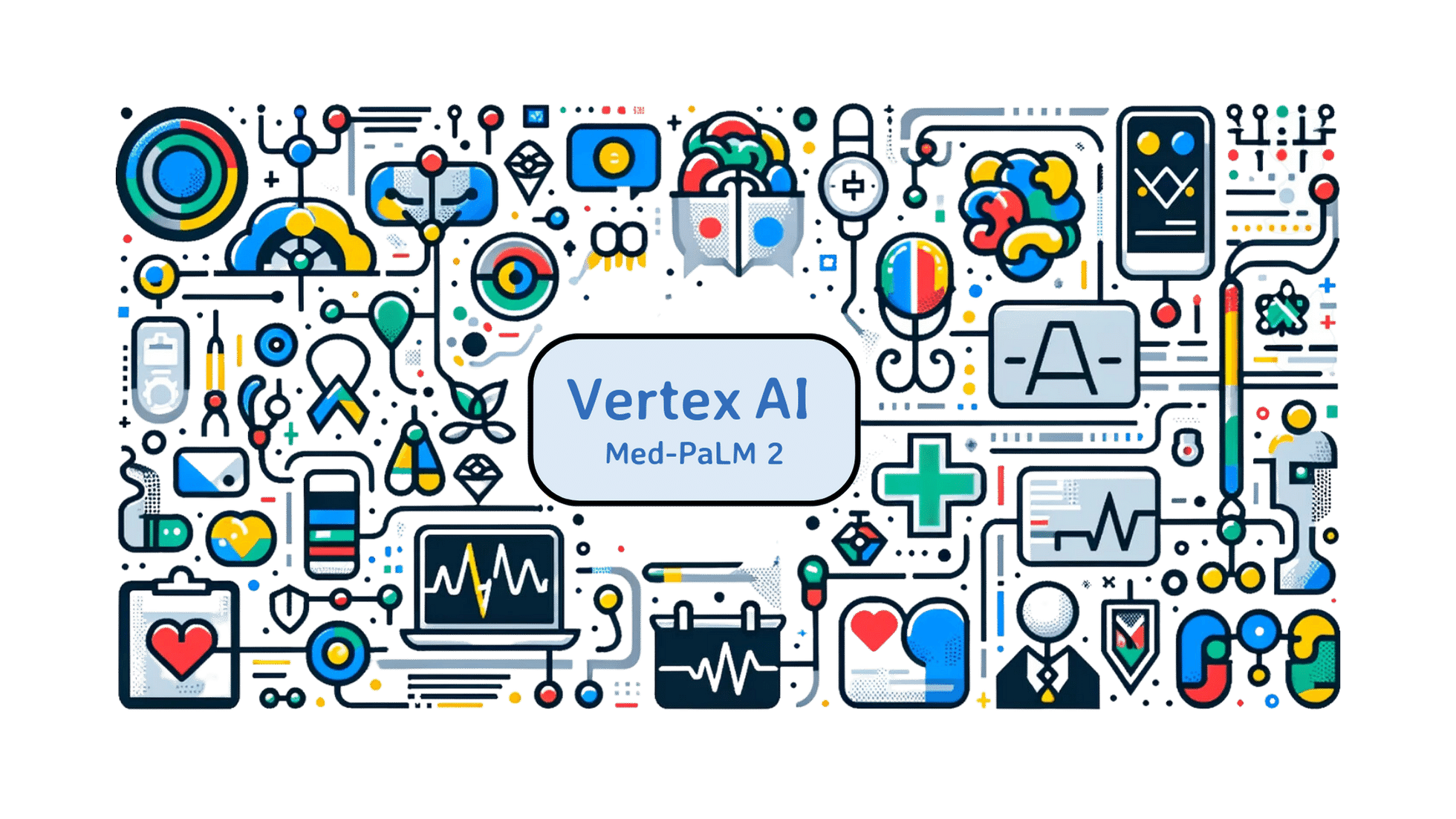Generative AI (GAI) has become a disruptive tool in clinical trials, with the potential to transform the entire clinical development value chain. However, just like any other breakthrough technology, GAI comes with its own set of issues and risks. Let's take a closer look at these issues, building on an in-depth paper by the Everest Group and other resources.
A Short History of AI and Health Sciences
The fusion of Artificial Intelligence (AI) and Health Sciences is an extraordinary frontier that holds immense potential for transforming healthcare. In this section, we will explore the significant milestones that have shaped this interdisciplinary field. From the inception of AI at the Dartmouth Workshop to the groundbreaking completion of the Human Genome Project, and from the introduction of deep learning algorithms to the FDA's endorsement of AI-driven diagnostic tools, the convergence of AI and Health Sciences has brought about remarkable advancements. This compilation highlights pivotal moments that have shaped both AI and Health Sciences.
-
1956 - Birth of Artificial Intelligence: The Dartmouth Workshop marks the inception of AI as an academic discipline.
- 1969 - Minsky & Papert publish “Perceptrons”: A rigorous analysis on of the limitations of Perceptrons
- 1980 - “Expert Systems” re-invigorate AI research
- 1982 - Hopfield networks – revival of “connectionism”
- 1986 - Hinton “rediscovers” backpropagation
- 1997 - IBM Deep Blue defeats Kasparov
-
2003 - Completion of the Human Genome Project: This monumental achievement in genomics provides a complete map of all the genes in human DNA, laying the foundation for precision medicine.
-
2006 - Introduction of Deep Learning: Geoffrey Hinton's work on deep neural networks revolutionizes machine learning, a subset of AI, enabling more complex problem-solving.
-
2008 - Launch of IBM Watson: IBM introduces Watson, an AI system capable of answering questions posed in natural language, later adapted for healthcare analytics and diagnostics.
-
2010 - CRISPR Gene Editing: The discovery of CRISPR-Cas9 technology allows for precise editing of DNA, opening new doors in genetic medicine.
-
2013 - Google DeepMind: Google acquires DeepMind, an AI company that later develops AlphaFold, a system for predicting protein folding structures, crucial for understanding diseases.
-
2015 - Liquid Biopsy for Cancer Detection: The FDA approves the first liquid biopsy tests, offering a less invasive method to detect genetic mutations in cancers.
-
2017 - First FDA Approval of CAR-T Therapy: The FDA approves the first CAR-T cell therapies for cancer, marking a significant milestone in immunotherapy.
-
2019 - AI in Drug Discovery: DeepMind's AlphaFold makes significant strides in predicting protein structures, accelerating the drug discovery process.
-
2021 - AI-Driven Remote Monitoring in Healthcare: The rise of AI-powered wearables and remote monitoring tools gain FDA approval, enhancing data-driven healthcare solutions.
-
2022 - AI in Healthcare Trends Report: A comprehensive survey reveals that 85% of healthcare executives have an AI strategy, indicating a growing acceptance and strategic focus on AI in healthcare. Source
- 2022 - AI-Driven Kidney Disease Management: Artificial intelligence starts to play a significant role in diagnosing and managing kidney disease, improving diagnostics and analysis of patient data. Source
- 2023 - AI and Digital Health Global Impact: Published on April 6, 2023, a report by the World Economic Forum discusses the role of AI and digital technology in improving global health
-
2023 - Tech Giants Unveil New AI Tools: On October 15, 2023, major technology companies unveil new AI tools specifically designed for healthcare applications. Source
- 2023 - Generative AI in Healthcare: A report published on October 18, 2023, highlights the transformative power of Generative AI in healthcare, covering advancements, solutions, and trends for the year. Source
These significant advancements reflect the dynamic field of AI in healthcare, focusing on diagnostics, management, and administrative efficiency. They align seamlessly with the broader trends in precision medicine and data-driven solutions. The importance of these milestones cannot be overstated. They have not only propelled individual disciplines forward but have also spurred the collaborative growth of AI and Health Sciences, particularly in precision medicine, data analytics, and digital health solutions. These advancements have had a profound impact on patient care, medical research, and healthcare administration, shaping the future of global healthcare. Find more details on the advancements in that sector in another article in the Blog which highlights the recent status of registrations and the FDA's perspective on AI in general.
The Perils and Pitfalls of Generative AI in Clinical Trials
Data Quality and Bias
To achieve results that are both meaningful and accurate, Generative AI (GAI) heavily relies on the quality of the training data. It's absolutely crucial to make sure that the training data represents a diverse range of languages, dialects, and cultures to avoid any biased outcomes. When new AI models are introduced, they might face some challenges in understanding and interpreting the subtle nuances of different languages and cultural contexts, which could potentially lead to skewed and inaccurate results.
To overcome these challenges, it is crucial to carefully curate datasets that encompass a wide range of linguistic and cultural variations. By including data from diverse populations and regions, GAI models can be trained to gain a better understanding and analysis of different languages, dialects, and cultural contexts. Continuous model validation is also essential to promptly detect and correct any biases that may be present.
Curating diverse datasets involves collecting data from various sources and populations, considering factors such as language variations, cultural norms, and demographic diversity. This ensures that the models are exposed to a wide range of linguistic and cultural inputs, minimizing the risk of biased outcomes and enhancing the accuracy and reliability of the insights generated.
Continuous model validation is an ongoing process that requires regular evaluation of the AI models' performance and identification of any biases or discrepancies in the results. Through thorough validations, any biases that may arise due to language, dialect, or cultural factors can be effectively detected and mitigated. This ensures that the outcomes generated by GAI models are unbiased and dependable.
Data security and privacy
When utilizing GAI in clinical development, safeguarding patient data becomes crucial. It is not only necessary but also a legal requirement for the healthcare industry to comply with existing standards like HIPAA and GDPR. Besides adhering to these standards, it is essential to proactively prepare for potential future requirements and advancements in data security.
Implementing robust security measures is vital to ensure the confidentiality and integrity of patient data. Encryption is a key step in this process, where data is converted into a code that only the appropriate encryption key can decipher. By encrypting the data, even unauthorized individuals who gain access to it will be unable to understand or utilize the information.
Another crucial aspect of data security is anonymization. This involves removing any identifying information from patient data, such as names, addresses, and social security numbers. This ensures that the data cannot be traced back to specific individuals, providing further protection for their privacy.
Equally important is storing the data securely. This can be achieved through the use of secure servers, firewalls, and access controls. By implementing these measures, healthcare organizations can prevent unauthorized access and minimize the risk of data breaches.
In addition to these technical measures, prioritizing employee training and awareness is crucial for healthcare professionals and organizations. This includes educating staff members about the importance of data security, teaching them best practices for handling sensitive information, and regularly updating their knowledge on emerging threats and security protocols.
Ethical Considerations
Before utilizing patient data for training purposes, it is essential to obtain informed consent from the individuals involved. This ensures that patients are fully aware of how their data will be used and have given their permission for its utilization. Informed consent is a fundamental principle in medical ethics and plays a vital role in maintaining trust between healthcare professionals and patients.
Furthermore, healthcare organizations must adhere to existing standards and regulations, such as the Health Insurance Portability and Accountability Act (HIPAA) and the General Data Protection Regulation (GDPR). These standards outline specific requirements for the protection, storage, and sharing of patient data, and compliance with these regulations is not only necessary but also legally binding.
By prioritizing strict confidentiality, obtaining informed consent, and implementing robust data security measures, healthcare organizations can ensure that patient data is used ethically and responsibly for model training. This not only upholds the trust and confidence of patients, but it also maintains the integrity of the healthcare industry as a whole.
Accountability
Although GAI models excel at analyzing vast amounts of data and generating valuable insights, they fall short in comprehending the complexities and nuances of medical practice. They lack the ability to fully grasp the unique circumstances and individual needs of each patient. Hence, it is crucial to involve human experts in the decision-making process to thoroughly review and validate the recommendations and protocols generated by the models.
Human involvement plays a pivotal role in evaluating the appropriateness and safety of treatment recommendations. With their expertise and experience, healthcare professionals can assess the accuracy and reliability of the insights provided by GAI models. They can consider factors such as a patient's medical history, specific symptoms, and other relevant information that may not have been captured or fully understood by the model.
Moreover, involving human experts in decision-making processes helps establish accountability. While GAI models may be responsible for generating recommendations, it is the healthcare professionals who ultimately make the final decisions regarding patient care. They bear the responsibility for the outcomes of these decisions and can be held accountable for any errors or adverse events that may arise.
Hallucinations and Machine-Generated Bias
To address the challenge of hallucinations, it is necessary to employ specific approaches and strategies. One effective technique is the use of regularization techniques, which can prevent models from generating data that deviates too far from the training data. By imposing constraints on the model's output, such as limiting the deviation from the training data, the occurrence of hallucinated data can be minimized.
Another important consideration is the potential presence of machine-generated bias. GAI models may unintentionally introduce biases into the results they generate, leading to skewed outcomes. This highlights the need for dedicated models and validation procedures to address these concerns. Bias detection and mitigation tools play a crucial role in identifying and correcting biases in the output of AI models. These tools ensure that the generated data is representative and objective, reducing the risk of biased results.
Regularization Techniques
To further prevent models from producing data that deviates too far from the training data, it is essential to employ regularization techniques. These techniques impose constraints on the model's output, such as limiting the deviation from the training data, which helps minimize the occurrence of hallucinations. By incorporating these techniques, the generated data stays within a realistic range, reducing the likelihood of producing unrealistic or misleading results.
In addition to regularization techniques, the use of bias detection and mitigation tools plays a crucial role in ensuring the objectivity and fairness of AI models. These tools can identify and correct biases in the output, ensuring that the generated data is representative of the diverse population it aims to serve. By addressing biases, healthcare organizations can avoid perpetuating inequalities and ensure that the insights provided by the models are reliable and unbiased.
Furthermore, incorporating a human-in-the-loop (HITL) validation process is vital for detecting and correcting hallucinations and biases. Human experts bring their expertise and contextual understanding to the validation process, helping identify any potential errors or biases that the model may overlook. By involving human experts, healthcare organizations can ensure that the generated insights are accurate, reliable, and aligned with the unique needs of individual patients.
Regularization techniques, bias detection and mitigation tools, and HITL validation are all integral components of a comprehensive approach to address the challenges and risks associated with generative AI. By combining these strategies, healthcare organizations can harness the full potential of generative AI while mitigating the risks and ensuring ethical and responsible use of the technology.
Sustainability
As the use of GAI continues to expand across various industries, including healthcare, it becomes imperative to embrace sustainable approaches to AI model training and deployment. This involves finding ways to minimize the environmental impact of GAI and ensuring that its benefits do not come at the expense of the environment.
One effective strategy to tackle the sustainability challenges of GAI is to optimize the efficiency of the training process. This can be accomplished by developing algorithms and techniques that reduce the computational resources required for model training, while still maintaining the quality of the results. By optimizing the training process, we can significantly reduce energy consumption and carbon emissions associated with GAI.
Additional Resources on Generative AI Challenges
- [Overcoming Generative AI Risks in Healthcare](https://www.boardofinnovation.com/blog/overcoming-the-risks-of-generative-ai-in-healthcare/)
- Research Limitations and Warnings - Using Generative AI](https://libguides.usc.edu/generative-AI/limitations)
- Generative AI in Healthcare: Benefits, Difficulties, and More](https://research.aimultiple.com/generative-ai-healthcare/)
Conclusion and Outlook
Generative AI has the potential to revolutionize healthcare by analyzing vast amounts of data and generating valuable insights. However, it is crucial to address challenges and risks associated with this technology. Ensuring high-quality, unbiased training data through diverse datasets and continuous model validation is essential for obtaining accurate and unbiased results.
Furthermore, data security and privacy must be prioritized when utilizing generative AI in clinical development. Compliance with existing standards, such as HIPAA and GDPR, is essential to protect patient data. Robust encryption, anonymization, and secure storage practices must be implemented to mitigate any potential threats.
Ethical considerations are also of utmost importance when utilizing patient data for model training. Strict confidentiality and informed consent must be maintained to uphold patient privacy and trust. Additionally, accountability becomes a complex issue when dealing with automated systems. The involvement of human experts in decision-making processes is crucial to ensure proper validation and accountability for any incorrect treatment recommendations or protocol design flaws.
Addressing the challenges of hallucinations and machine-generated bias is vital for the successful application of generative AI. Regularization techniques can be employed to prevent the generation of data that deviates too far from the training data, reducing the occurrence of hallucinations. Moreover, the development of bias detection and mitigation tools is crucial to ensure the generated data remains objective and representative. Incorporating a human-in-the-loop validation process can further enhance the accuracy and reliability of generative AI models. By involving human experts, the detection and correction of hallucinations and biases can be effectively addressed, ensuring the integrity of the generated data. As generative AI continues to evolve, it's crucial for AI experts, clinicians, and researchers to join forces in a collaborative strategy.
By working together, these stakeholders can navigate the challenges and risks associated with this technology, unlocking its full potential in a responsible and ethical manner.
In conclusion, generative AI has enormous potential in clinical trials, especially in the era of precision medicine. However, it's vital to approach this technology with a comprehensive understanding of the challenges and risks involved. By actively working together and embracing ethical practices, the healthcare industry can harness the transformative benefits of generative AI while safeguarding patient privacy, maintaining accountability, and minimizing environmental impact.
Generative AI in Clinical Studies (part 2)
In the next part, we will explore the challenges and risks of generative AI in healthcare. We'll provide a valuable Five-Stage Roadmap for healthcare professionals and researchers developing AI predictive models. This roadmap addresses the complexities of AI integration, from planning to evaluation, with the goal of improving patient care and operational efficiencies. Read here: Generative AI in Clinical Studies (2)




